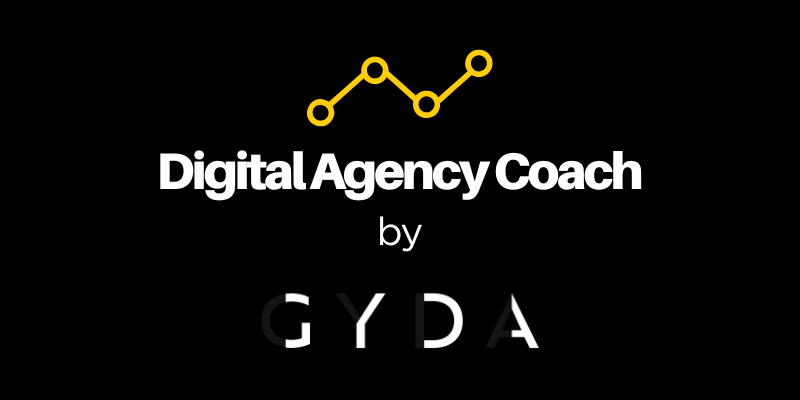Managing People: Are You A Coach Or An Advisor
Most digital agency owners often founded their own agency as a result of being a successful, talented and passionate technician - be it a creative, a strategist or even a business development manager. Very few agency owners are backed by MBA’s or formal business training and as such, this side of the business usually happens by accident.
While you can call on external support and advice for financial and strategy concerns, managing your team & people usually remains your responsibility.
Being a successful leader and manager is a skill in itself and is crucial to the success of your agency - in more ways than one.
On this week’s episode of Agency Conversation, Janusz chats with UWE Senior Lecturer, Dr Arthur Turner, about Coaching & Leadership. They speak about how to be a coach, rather than an advice-giver & how this approach will affect the success of your team and ultimately, your agency.
What Is Coaching?
It’s important we start by debunking a common misconception that coaching should be about a ‘more successful’ person giving advice or anecdotes in order to make another individual more successful.
Dr Arthur Turner describes coaching as building a trusting relationship with someone else, from which you learn, develop and grow. He explains coaching is a natural, organic and collaborative concept in which both parties are continually learning.
The idea of coaching is usually more about thinking, reflection and space for learning, rather than a matter of advising or providing solutions to problems. A good coach will tend not to turn to formulaic, templated methods but instead will tailor their approach to suit the individual or scenario at hand.
So, How Do We Coach?
While coaching should not be about models and templates, like all things in life, there is a process you can follow.
It’s worthwhile noting that coaching doesn’t necessarily have to be a planned program, filled with workshops and meetings. You can be a coach within small ad hoc conversations or when there are team problems to solve.
Dr Turner advises starting and ending every coaching session with friendly, informal conversation - ‘How’s your training going?’ or ‘How are the kids?’ This helps to build a trusted and familiar connection.
Then, fill your coaching sessions by asking questions, and learning about the challenges or problems in play. Before jumping in with advice, solutions or answers, which you as the agency leader may very well have, leave space and silence for thinking and reflecting. Encourage your team to explore their own thoughts and ideas before posing questions about what next.
As a manager, or agency owner, you might have seen similar situations before, but not in the scenario unique to the individual or the subject matter. Coaching relies so heavily on collaborative conversation, and being humble and understanding that both parties might not know the solution yet. This is why building a trusting and cooperative relationship first is key.
A good coach will encourage their mentee to use this concept of ‘conscious reflection’ to solve problems or gain perspective on a situation outside their coaching session.
How Coaching Benefits The Individuals In Your Agency?
As humans, we learn and respond better to questions rather than answers.
If you are a team leader who embodies the role of the advisor, it’s likely you’ll often be pulled away from your strategic work to solve operational problems. If you continue to simply just offer advice or answers to the problems, your team won’t develop as problem solvers or creative thinkers. Instead, they’ll continue to turn to you for quick help and fast solutions.
Coaching works to develop individuals, by empowering and enabling them space to think and solve problems with creativity and genius which might otherwise remain untapped.
By being a coach and creating a team culture where the individuals have the power to think for themselves and find their own answers, you’re able to harness the collective human power of your agency.
Coaching the individuals within your agency will work to build a team of engaged, motivated and independent people who feel driven and fulfilled in their roles and ultimately become better at what they do, which helps your agency be better at what it does.
How Your Agency Benefits From A ‘Coach’ Manager, Rather Than An Advisor
We’re all familiar with the saying ‘happy wife, happy life’ - well when it comes to agencies, happy & fulfilled employees create a happy, successful business.
Employees who are often critiqued and advised are more likely to feel micromanaged, stressed and uncreative. They won’t have space to produce good work and they’ll feel less inclined to do so anyway. This mentality will lead to employees feeling unfilled and will give your agency a high turnover rate.
A team of dull and uninspired individuals is more likely to produce dull and uninspired work as a result, which will affect the output of your agency and the quality of work you deliver for your clients.
In addition to this, as agency leaders and managers, if you’re continuing to be involved in technical and operational conversations, this limits the time you can spend on the bigger picture.
Instead, adopt a more developmental style of management and coach your team to become independent, creative and motivated to deliver quality work for your clients. While you return your focus to strategic conversations and start growing your agency.
Dr Arthur F. Turner
Is a Senior Lecturer at the University of the West of England. After completing his Doctorate in Business Administration with the University of Glamorgan, Dr Turner now focuses on the vital elements concerned with middle manager leadership development. Dr Turner has been developing research around the use of three main ideas in leadership development; namely space, place and pace, the role of artefacts and mediating objects and the use of the outdoors in adult learning.


